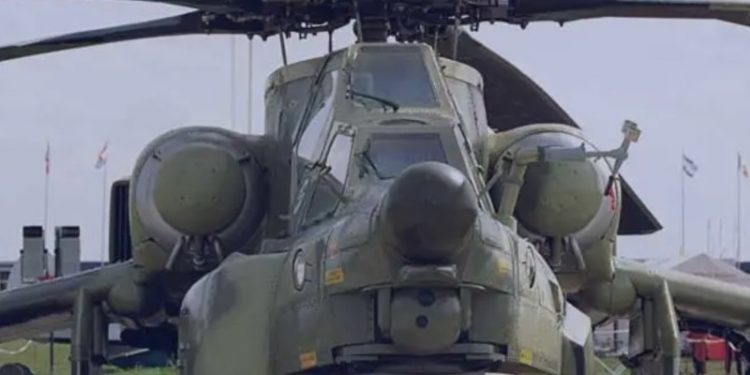 The $7 billion arms deal the Algerian military regime sealed last year with the Kremlin has hit a serious snag after the European Union, the US, the UK and their allies have banned Russian Banks from SWIFT system in response to Russia’s invasion of Ukraine.
The $7 billion arms deal the Algerian military regime sealed last year with the Kremlin has hit a serious snag after the European Union, the US, the UK and their allies have banned Russian Banks from SWIFT system in response to Russia’s invasion of Ukraine.
The move of unplugging almost all Russian banks from the international financial and payment system aims to block their access to funds via SWIFT, which is a key tool for the smooth money transactions worldwide.
The unprecedented global economic and financial sanctions imposed on Moscow will affect Russia’s clients and importers of Russian weapons such as Algeria which will no longer be able to wire money through the US-EU led payment channels.
The Algerian military junta is thus caught in a predicament as it risks American and European retribution if it chooses to ignore the international sanctions deployed against Russia, adult children of top Russian officials and businessmen close to President Vladimir Putin.
Washington and its partners have announced sweeping sanctions targeting Moscow’s banking, technology, aerospace sectors… They have also decided to freeze assets in Western banks, impose equity restrictions on critical mining, transportation and logistics firms.
Last July, Algeria’s army chief Said Chengriha visited Moscow for talks with Russian officials for the purchase of the advanced Sukhoi 57 and Sukhoi 34 fighters to beef up Algerian fleet made of various versions of Sukhoi and Mig jets.
However, as the Russian military advance continues in Ukraine, the West is expanding the sanctions against Moscow making the $7 billion Algerian arms deal unlikely to go through.
It is a big disappointment for Chengriha and top brass, engaged in a frenzy arms race in a bid to catch up with Morocco’s military superiority.
Despite debates on effectiveness of the Western sanctions, Russia’s currency sank to a record low Monday as traders struggled to get access to the ruble.
The ruble fell to 137 to a dollar, a decline of more than 10% from Friday’s close, as traders say that the ability to buy and sell the Russian currency has become more limited as fewer banks want to settle transactions against it in the offshore market.
Last week, Russian markets were shut to contain the fallout from sweeping Western sanctions. The US says that the world is acting in unison against Russia and is dispatching envoys to Europe, Asia, Middle-East and North Africa to get support for the economic and financial sanctions imposed against Moscow.



